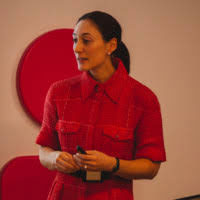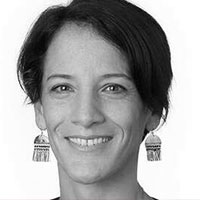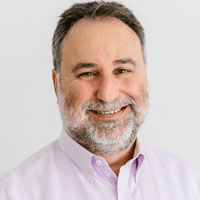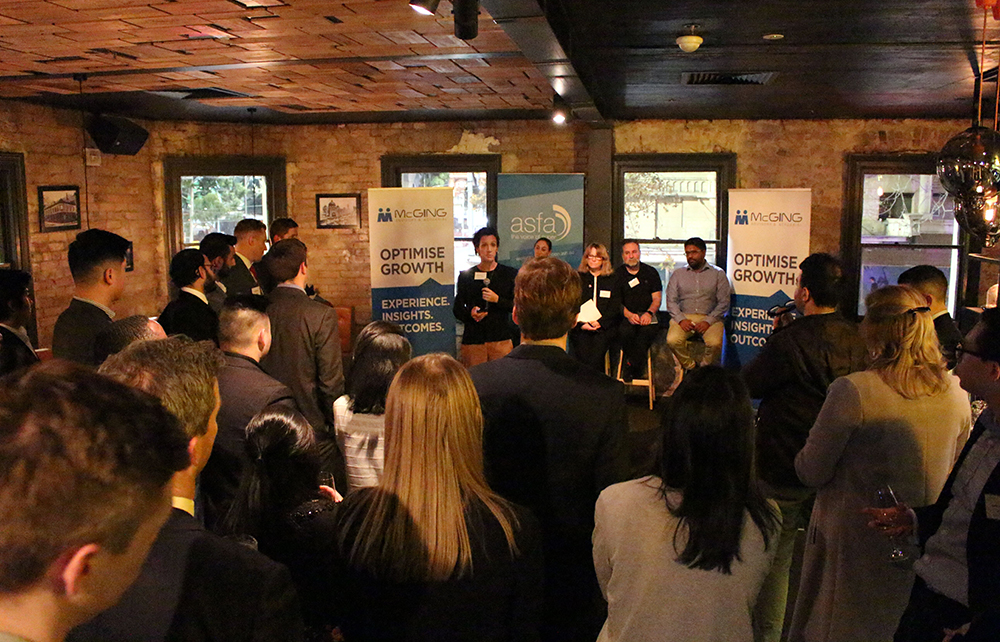One of my favourite aspects of French culture, aside from the pastries and the cheeses, is their appetite for vigorous debate on just about any topic. Whether it’s at a café or a party, le debat is a national sport, a way of life. Disagreement doesn’t seem to offend anyone. In fact, it’s often expected that you take an opposing argument, fondly referred to as se faire l’avocat du diable, or playing the devil’s advocate.
Yet how often in Australia do we fiercely debate topics—other than sport and occasionally politics—with friends and colleagues? In-depth, without taking offense, strongly arguing a side so that collectively we can uncover and understand different perspectives. However, this is what we did at our recent Emerging Leaders event in Victoria, at The Duke of Wellington bar, on a mid-week, mid-Winter’s evening. The pros and cons of member engagement were explored and debated; its necessity, its limits, the possibilities and the alternatives.
The hot topic of member engagement
The debators were: Stephen Huppert (Independent), Nicole Shoaei (First State Super), Georgie Obst (HESTA) and Neekhil Shah (McGing Advisory & Actuarial). Jocelyn Furlan, the current and former Chair of various boards including the Superannuation Complaints Tribunal was the adjudicator.
Attendees were encouraged to place their initial vote ahead of the debate. With 90 per cent of attendees voting in favour of member engagement, it seemed that the outcome was a forgone conclusion. However, here’s what transpired…
From the affirmative side

Segmentation and connection – Nicole Shoaei, First State Super
Member Segmentation expert Nicole Shoaei kicked off the debate saying:
“A key issue when members are not engaged, is multiple accounts. We know Australians are paying about $2.6 billion in fees for multiple accounts, which is detrimental to their balances… so member engagement is absolutely vital.”
“Looking after the needs of members is about tailored engagement with careful segmentation,” said Shoaei. “We need to make sure they’re on the right path. Not all your members are the same; without the right type of engagement, we fail our members.”
“Engagement is about an emotional connection, between a member and their fund,” explained Shoaei.

Trust requires engagement – Georgie Obst, HESTA
The third speaker, Georgie Obst, Customer Loyalty expert, declared:
“Yes, engagement isn’t easy, but that doesn’t mean it doesn’t matter. And it certainly does not mean we should shy away from the challenge.”
“Our analysis suggests, the more engagement, the better the retirement outcome,” Obst shared. “The more connected that members feel to their savings, the more likely they are to take steps to be more prepared. So we need to help them, and we need to help them help themselves.”
“Member engagement is all about building trust,” said Obst, highlighting the role of engagement in creating trust with members. Drawing a comparison with the Dutch system, Obst shared how a lack of communication with members had compounded trust issues during the Global Financial Crisis, and how the Dutch had looked to Australia for advice on member engagement.
“If you believe member engagement doesn’t matter, then you’re probably not doing it right!” Obst concluded.
Counter arguments

Re-evaluating our focus – Stephen Huppert, Independent Consultant & Advisor
Independent Consultant and Advisor to the industry, Stephen Huppert responded by questioning the very meaning of member engagement.
“Is it the number of times a member logs on or calls? Is it the NPS score? Is it about teaching financial literacy?” queried the former maths teacher. “Sure, financial literacy is a good thing, but research suggests that unless it’s done early, such as at school, then it is difficult to improve.”
“Is it really engagement that will achieve better outcomes at retirement?” Huppert asked, looking enquiringly at the audience, “In combination with fixing systemic issues such as multiple accounts, it’s net investment returns and more efficient operations that really make a difference. Sure, we need to personalise experiences and messages, but that’s not member engagement, that’s good customer service.”

Focusing on member outcomes – Neekhil Shah, McGing Advisory & Actuarial
The final speaker was Consulting Actuary, Neekhil Shah.
“Member engagement does not matter…” Shah announced. “What matters is, a well-designed system and that we are the stewards of people’s money. We should not transfer the responsibility to them… superannuation is intended as a long-term proposition.”
“The design of the system matters and Australia has a world class system,” Shah reminded the audience. “The reason we have a world class system is that we have compulsory contributions… and that it has broad coverage, across the whole population.”
Also commenting on the Dutch retirement system, Shah cited the recent results of the Global Pensions Index: “In several metrics, the Dutch have better retirement outcomes than Australia… the index indicates that the Dutch system has more coverage and better adequacy, which shows it’s the design of the system that matters,” said Shah. “Is it really the right decision to transfer responsibility to members?”
Making a final appeal, Shah announced: “Let’s accept that there are disengaged members and longevity risk is an issue. Let’s accept that and take responsibility… we’re the experts.” With that, Shah paused for a moment, “We have members, not customers.”
The Verdict
The debate ended and the audience again voted. While there was a significant swing in votes, with a quarter of attendees switching their vote, member engagement remained the winner, with 63 per cent voting in favour.

Victoria’s ASFA Emerging Leaders lean in.
Some final reflections
Debate can certainly lead to some interesting ideas. Some might even go so far as to say that conflict is the “primary engine of creativity and innovation”, to quote internationally renowned leadership expert, author and Harvard lecturer Professor Ronald Heifetz.
This eve
nt got me thinking about other ‘accepted norms’ we could be challenging in the super industry, and how it can bring about new ways of thinking and doing.
Perhaps there are other techniques or ideas that our foreign cousins are tapping into that we could adopt, like the Dutch approach of conversing with a foreign partner to gain insights and learnings on common challenges. After all, there is plenty of common ground that we share with others—both within the super industry, overseas, but also across industries within Australia—that we can use to our mutual advantage.
Are there super-related topics you would like to debate with your colleagues and friends that you haven’t previously considered? If it feels a bit awkward, why not try it over a café au lait or a croissant?
The role of Emerging Leaders
Emerging Leaders is ASFA’s group for under 40s professionals, with a dedicated committee of Emerging Leader members.
Representing the Victorian Executive Committee for ASFA, Sean McGing, shared his reflections on the role of Emerging Leaders.
“Improving the lot of members means being innovative, taking the initiative, and getting things done… and that’s where all of you, digital natives who are connected to the world, need to help bring about change,” said McGing. “And of course, as we all know, what really matters at the end of the day, is improved member outcomes.”
Emerging Leaders networking events provide exclusive access to industry executives and decision makers through mentoring and learning opportunities. New members are always welcome!
To find out more about Emerging Leaders visit the ASFA website.




































